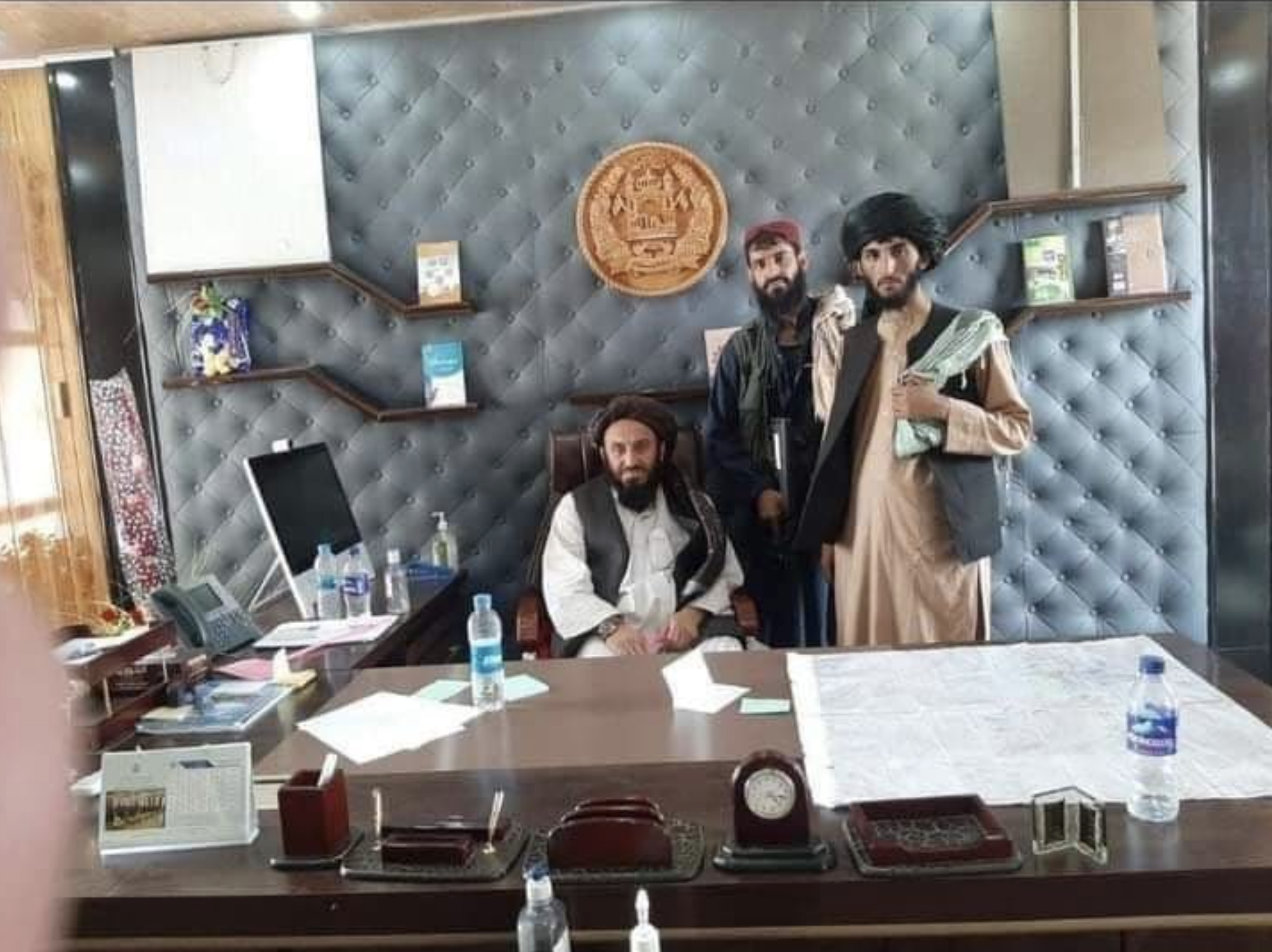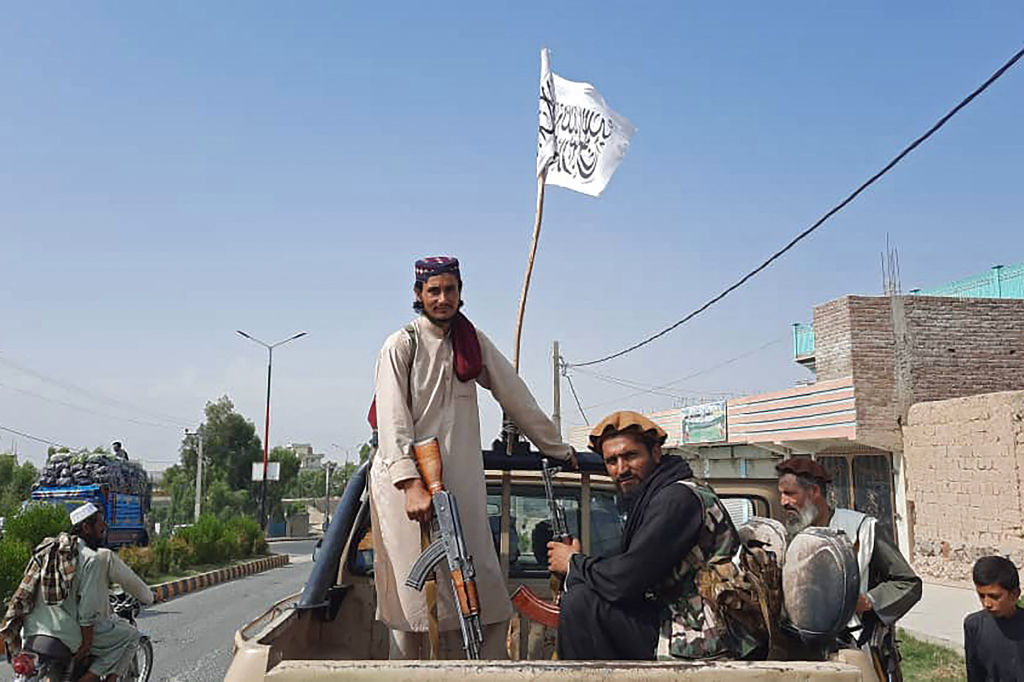Rather than the six to twelve months predicted by the US intelligence services, the Taliban ended up needing just a few days to take Kabul – and with it, control of Afghanistan. Only this morning, the US was asking the Taliban to wait just two weeks until an interim government could be set up. But the US, having withdrawn its troops, ran out of leverage and the Taliban decided not to wait. Joe Biden had intended to support Ashraf Ghani, the Afghan president, but he has fled the country. Taliban officials have released photographs of themselves at his desk (below).

Britain made its own withdrawal decision long ago: we need to remember that when criticising Biden now.
The US may now have to liaise with the Taliban for the evacuation of the remaining Americans, who are being told to stay at home and not risk coming to the US embassy or Kabul airport. Defections have started with one Afghan government official releasing a video saying that he has switched sides. Sahraa Karimi, the head of Afghan Film, posted a video saying that the Taliban were now all over Kabul. ‘Hey ppl of the this big world, please do not be silent, they are coming to kill us,’ she said. While she’ll certainly be in the Taliban’s firing line the escape options are limited: priority for evacuation has gone to Western diplomats who are boarding Black Hawks and Chinooks which are taking off from the US embassy. France’s ambassador to Afghanistan released a video of himself fleeing: the US ambassador has also gone.
The House of Commons is to be recalled to discuss this debacle. But other than offer asylum to those fleeing the Taliban, it’s hard to see what else there is for Britain to do. When Joe Biden ordered US troops to withdraw in April, he was criticised by the many in the UK. But we pulled out British troops a decade earlier – and in so doing, we ended up in a poor position in telling the Americans to stay longer. Boris Johnson has released a video accepting that there will soon be a new government in Afghanistan and that important thing is that it does not harbour Bin Laden-style terrorists. This is, in effect, the Biden line: ‘we set out to defeat al-Qaeda, that job has done, so we can go.’ As Freddy Gray argues over on Spectator World, this is very different to the Biden of 2001 who set out to create a new government in Afghanistan.
When I was in Afghanistan reporting on the UK campaign for The Spectator I met Mark Carleton-Smith, now head of the Army, but then commanding UK forces. When I asked him how long Britain should stay, he replied – instantly – that this was a job that we should ‘measure in decades’. As I wrote at the time, the Taliban believe the West has stopped measuring tasks in decades. It was proven right by Britain long before it was proven right by America. Given the British soldiers who died in Afghanistan, there is understandable dismay and outrage about what looks to some like a re-enactment of the Saigon airlift. We are indeed looking at a humiliation for the West, the defeat of a global superpower by a third-world volunteer army. But Britain made its own withdrawal decision long ago: we need to remember that when criticising Biden now.
Nor should we forget that the parallels extend beyond Saigon. When Britain withdrew from Basra, it was the same story. We ended up negotiating with the Shi’ite death squads, to whom we effectively handed control of the city – abandoning people of the city to its mercies. Morgues filled up quickly with barbers, the owners of off-licenses and others accused of un-Islamic activity. We did deals with the Madhi Army to let the UK evacuate Basra airport quickly and without violence. It was a shameful moment in our history: we deserted the people of that city, a place whose old government we deposed. We grossly underestimated what it would take to keep the peace, we failed to provide the troops and then we ended up precisely what Biden is doing now. But after a far shorter period of time. When the inquiry came, we ended up asking why we fought – not why we lost.
We can now expect to see a mass exodus from Afghanistan, followed by a revenge campaign that may yet spill over into ethnic cleansing. This has been a disaster, but it’s more than just an American disaster. In next week’s Commons debate there will be plenty for Britain to reflect on.







Comments